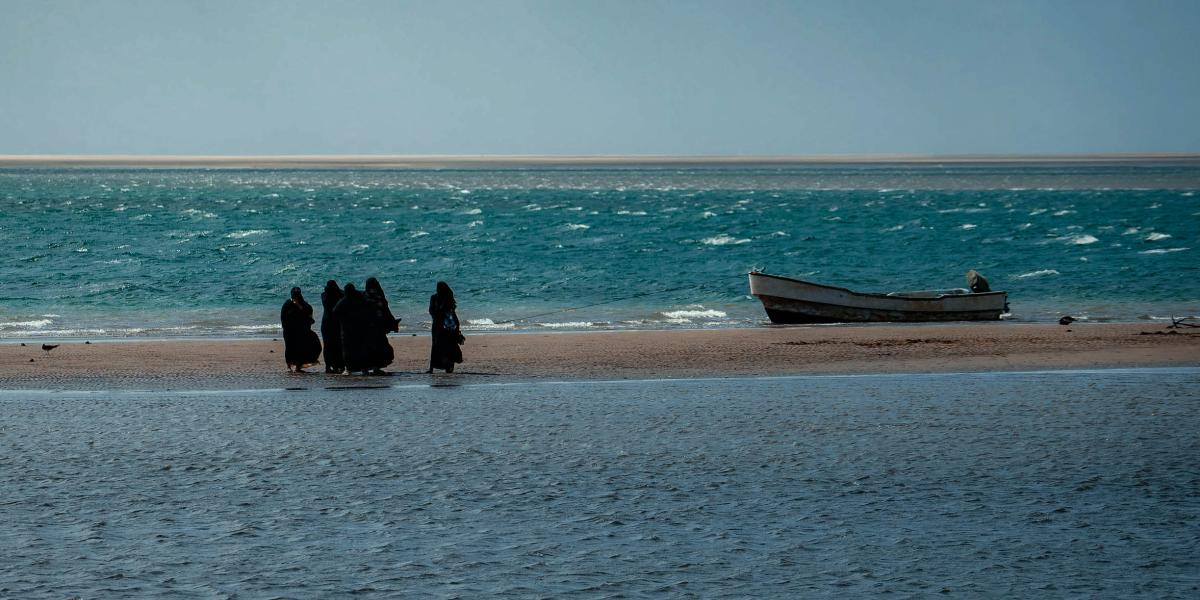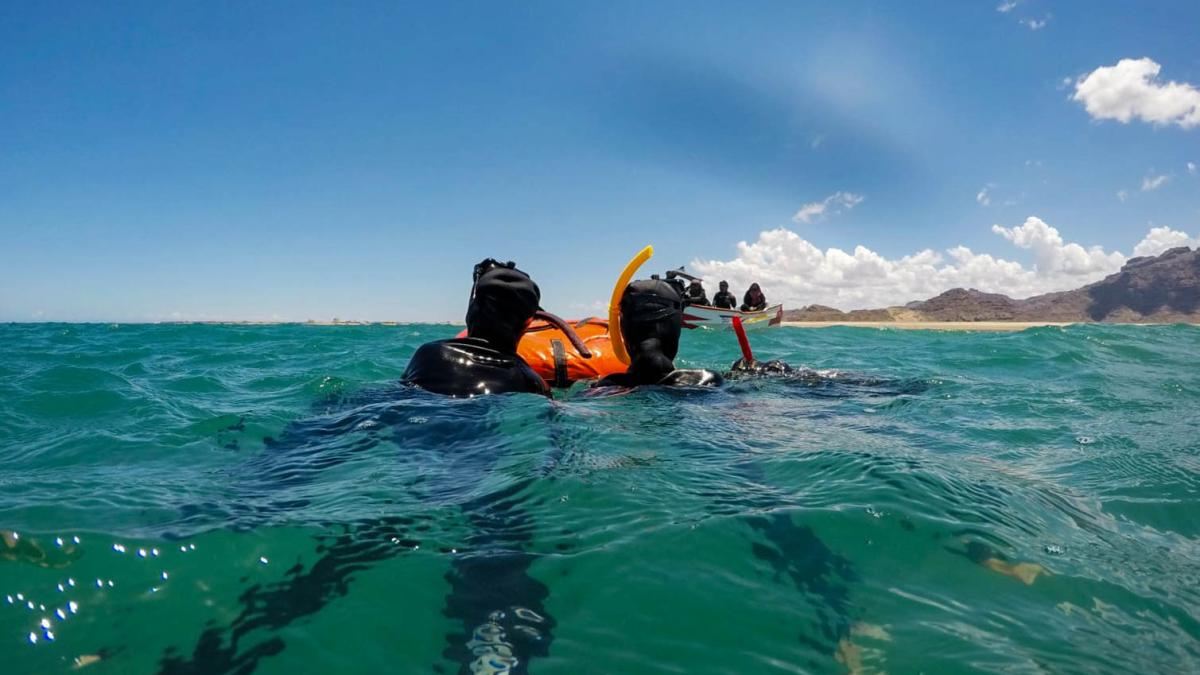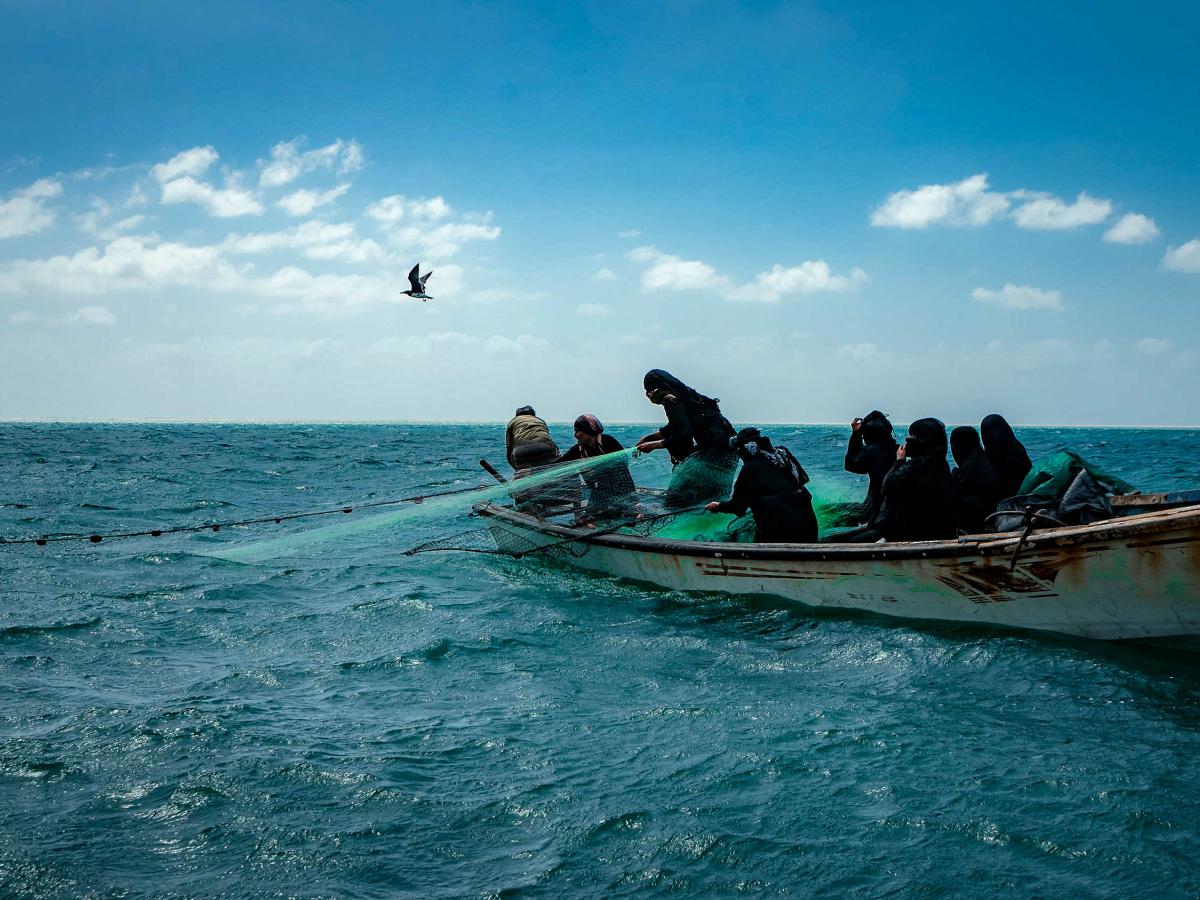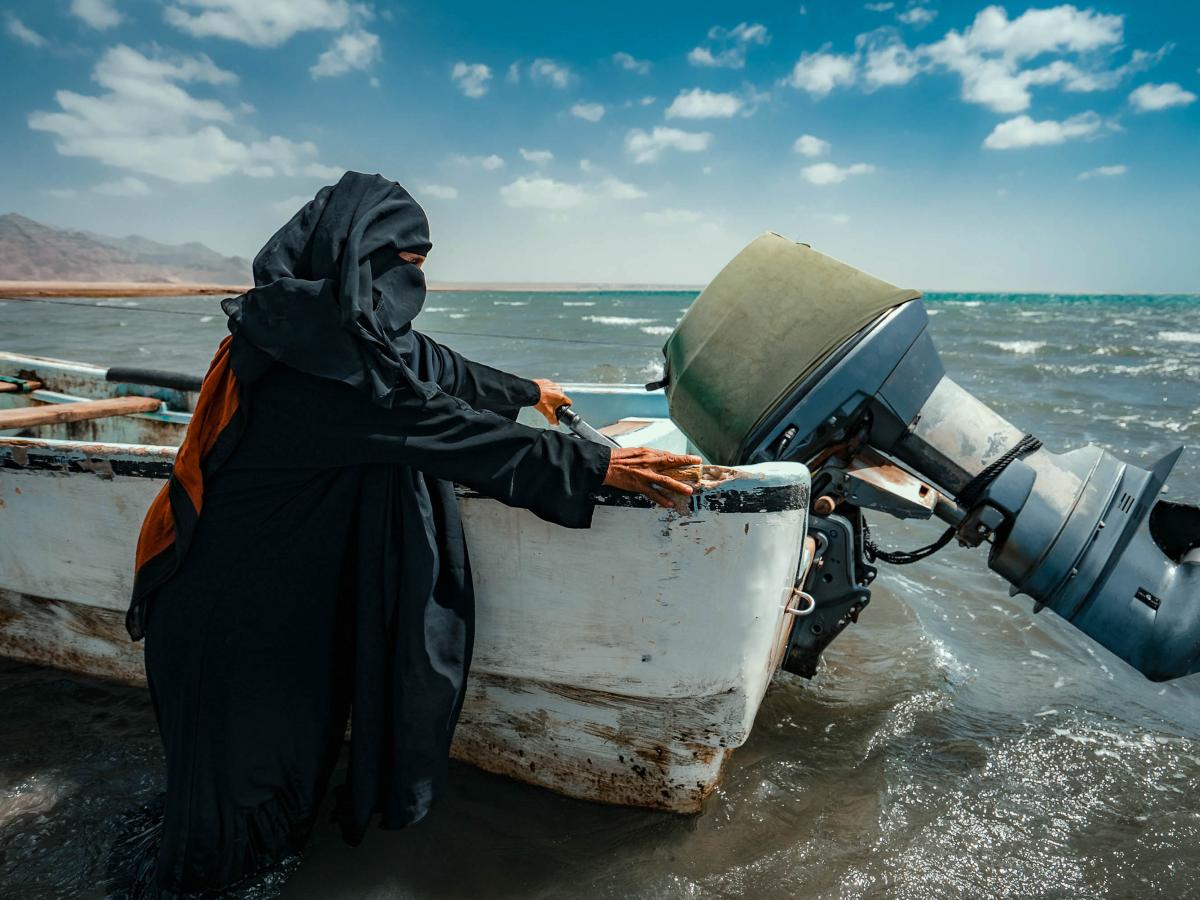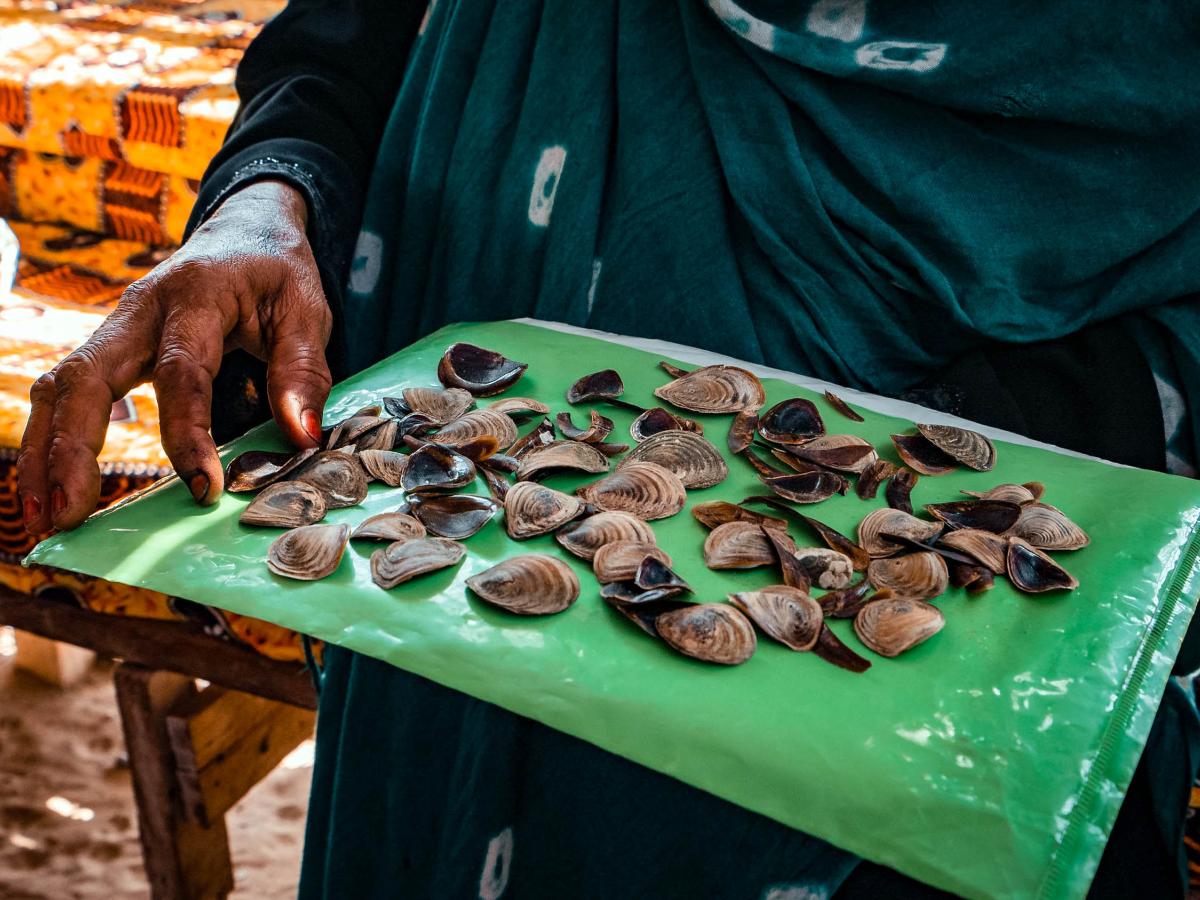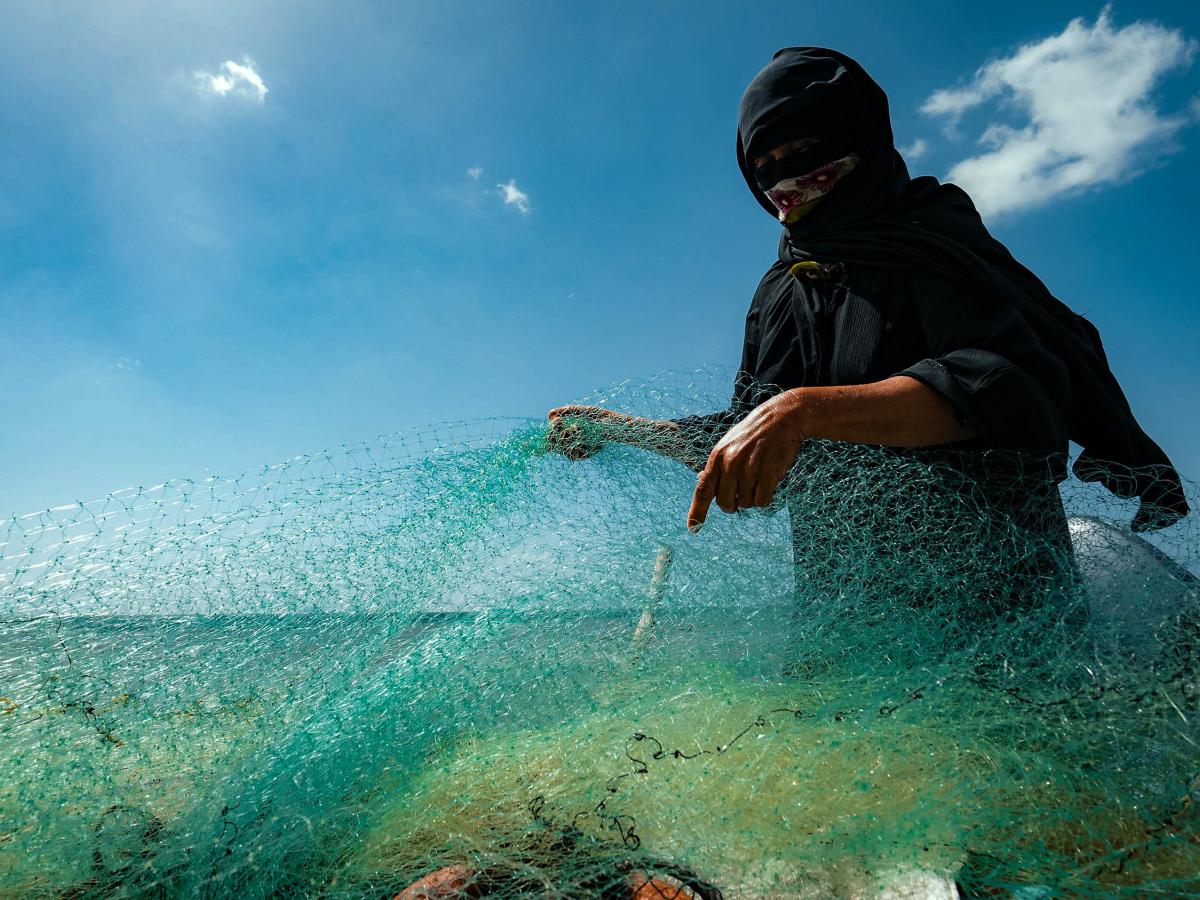USAID Supports Yemen’s Women Divers to Drive Economic Growth
Deeply entrenched gender norms limit Yemeni women’s access to resources and restrict their social mobility and decision-making power. Innovative training programs provided by the USAID Economic Recovery and Livelihoods Program (ERLP) have supported Yemeni women to break barriers and drive their economic development.
Amlak is part of a small group of women from rural coastal villages who break from Yemen’s traditional gender roles and take to the seas as free divers and fisherwomen. In May 2023, she was one of 30 women from two local women’s associations who participated in USAID’s two-week, advanced freediving and market linkages training. The women dive to collect the hard plates of mollusks that seal their shells, called onycha, a product that offers a clear economic opportunity. Onycha is a highly sought after ingredient used in Middle Eastern ceremonial incense mixtures. But diving in abayas, flip-flops, and homemade goggles and utilizing improper breathing techniques often exposed the women to health hazards and constrained their productivity.
Most of the women are heads of their households and sole income earners after divorce from or death of a spouse. Some are grandmothers, made deaf from diving, who have been fishing for decades. Others share this role with male family members, or are young women who lack income-earning alternatives.
In addition to providing the women with diving equipment like suits, fins, and masks, USAID/ERLP offered a mix of advanced classroom and practical, open-water training. The training taught the women breathing techniques to optimize dive times, depths, and oxygen recovery, underwater ear air pressure equalization, use of freediving fins, and rescue techniques. Training also emphasized the conservation of marine ecosystems and sustainable fishing practices, including preserving endangered species. In addition, the women received instruction on fish handling, proper processing techniques, and cold-chain guidelines, as well as training on market linkages. Additional topics included product packaging, market negotiation skills, and understanding how to identify and deal with large export traders.
Onycha is valued as high as $340 per pound in online markets. However, the women were previously limited to selling the product to local traders who only offered them $20 per pound. Thanks to their newfound exposure to other markets and their ability to charge higher prices, the women have doubled their earnings. During sardine season, the women fish with nets. What they don’t eat, they process with salt and then dry into Wazaf, a popular local delicacy. Earnings from these sales have doubled as well, adding to a growing shift in the sector’s gender dynamics.
“The training opened a new world for me. I can dive deeper, stay longer underwater, and my work has become a dance with the sea, not just a task. This has encouraged me to dive without fear and fatigue. As a result, I am gathering double the amount as I was before, and thanks to the marketing and negotiation skills I learned, I am getting better prices for my products and have doubled my income.” – Amlak, Yemeni Coastal Woman Diver and Fisherwoman
Although coastal women have been working in Yemen’s fisheries sector for some time, their roles were often relegated to small-scale operations like fish cleaning and net mending. After adopting their newly learned techniques, market-ready packaging, and negotiation skills, the group increased its overall annual income from $12,000 to $45,000. Now a more competitive force in the market, the women share their newfound knowledge with other fisherwomen and divers. USAID’s gender mainstreaming initiatives have enhanced women’s incomes in this vital sector and given female-owned businesses access to further economic resources, allowing women like Amlak and her colleagues to improve their livelihoods.
